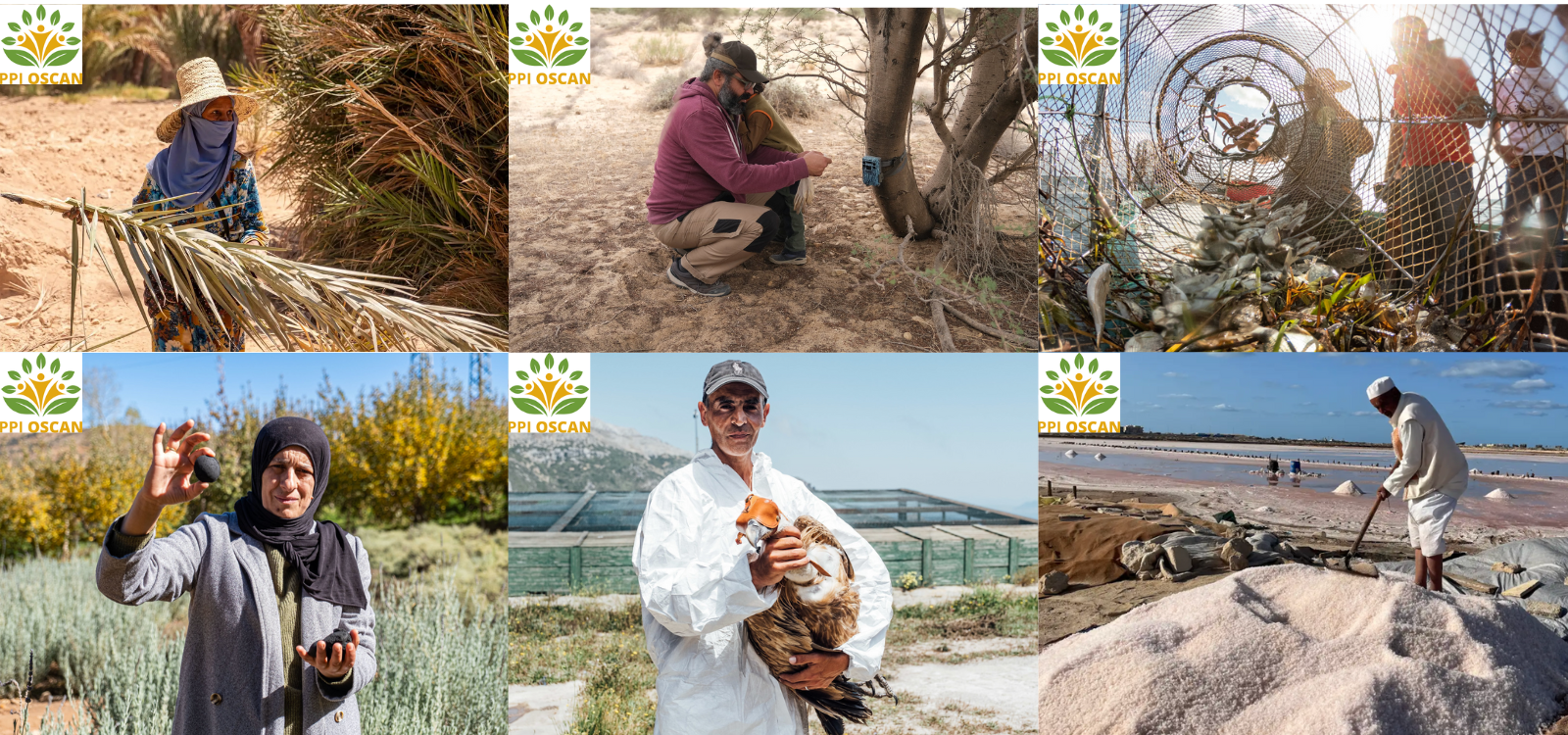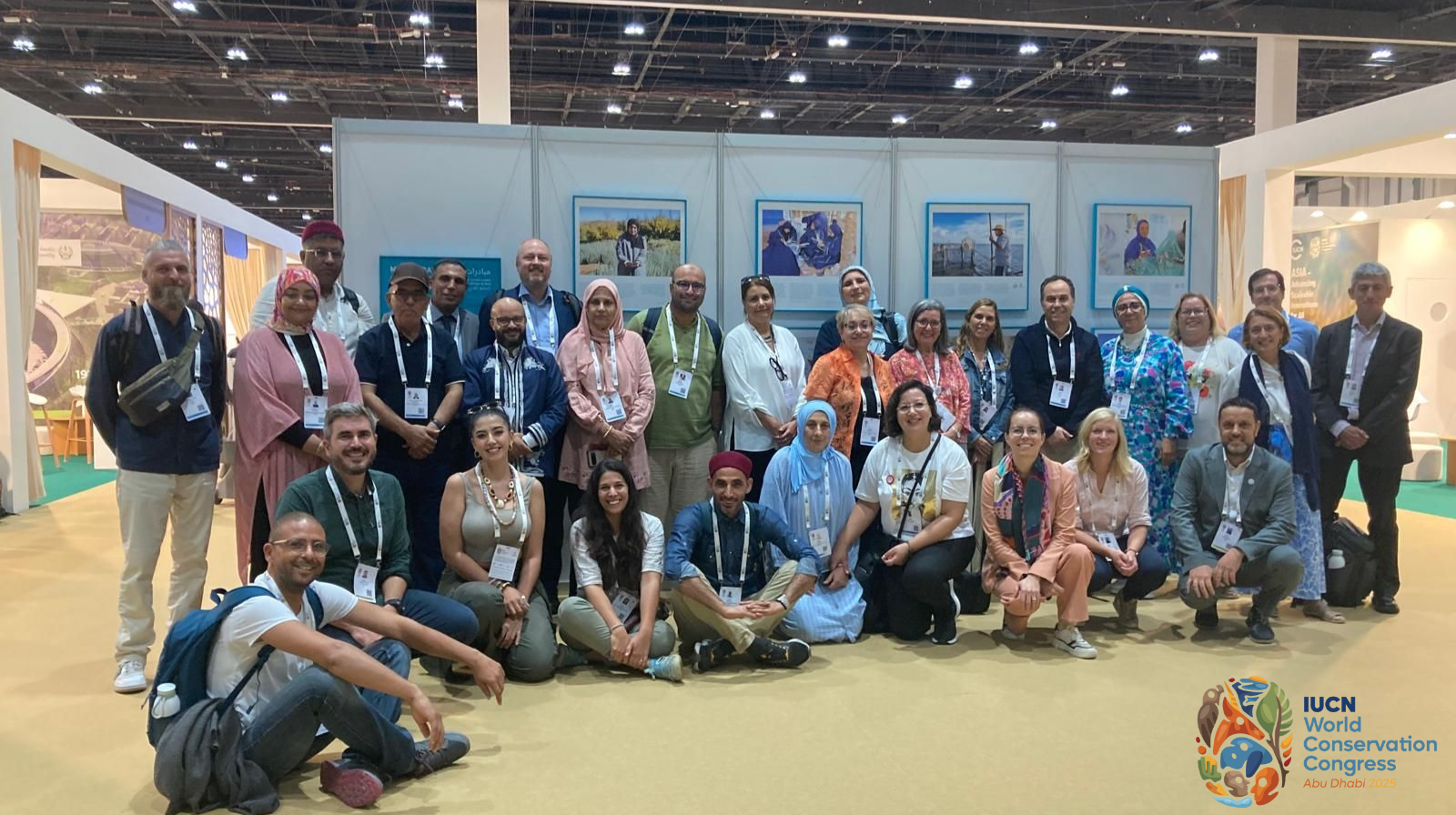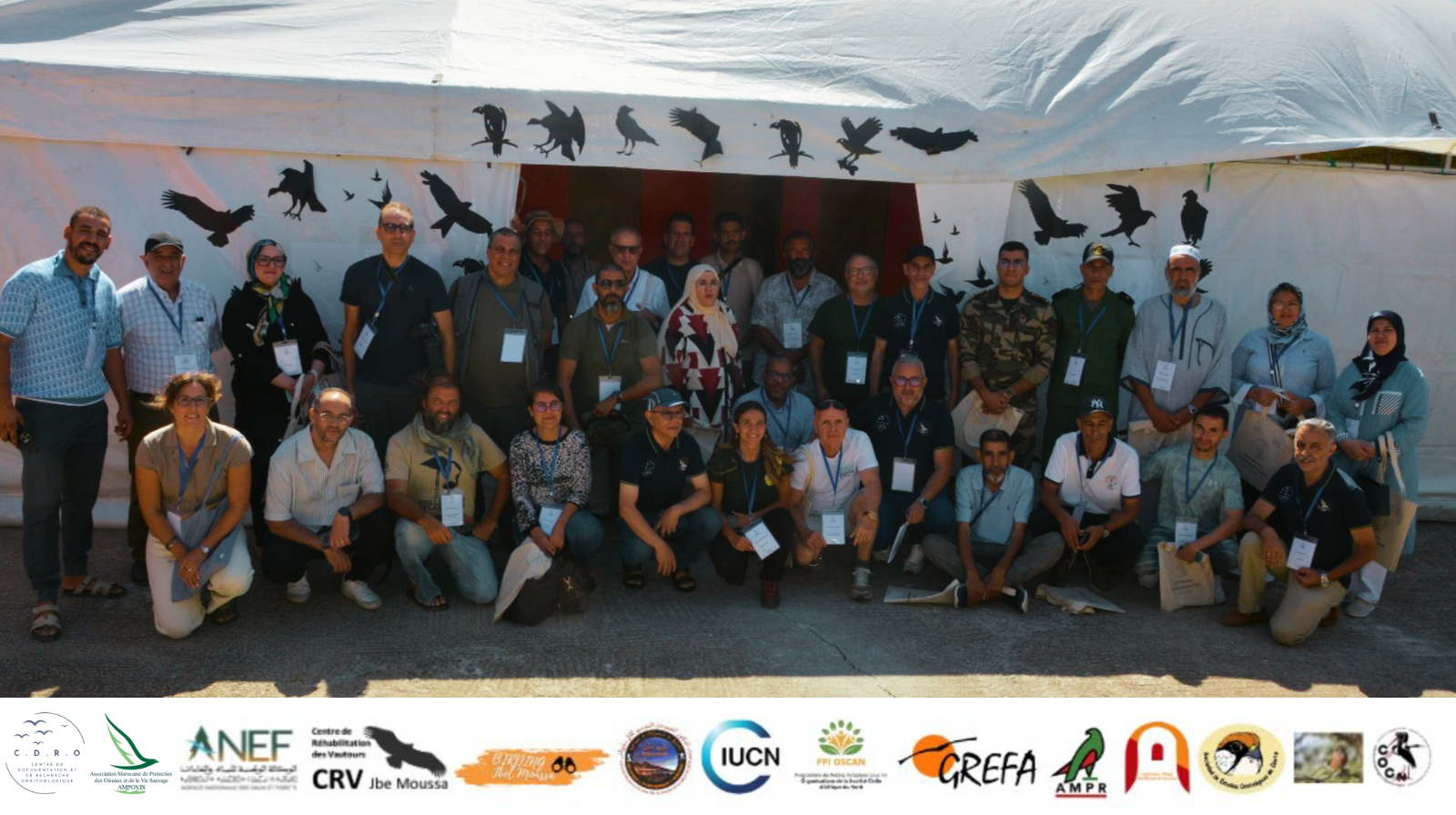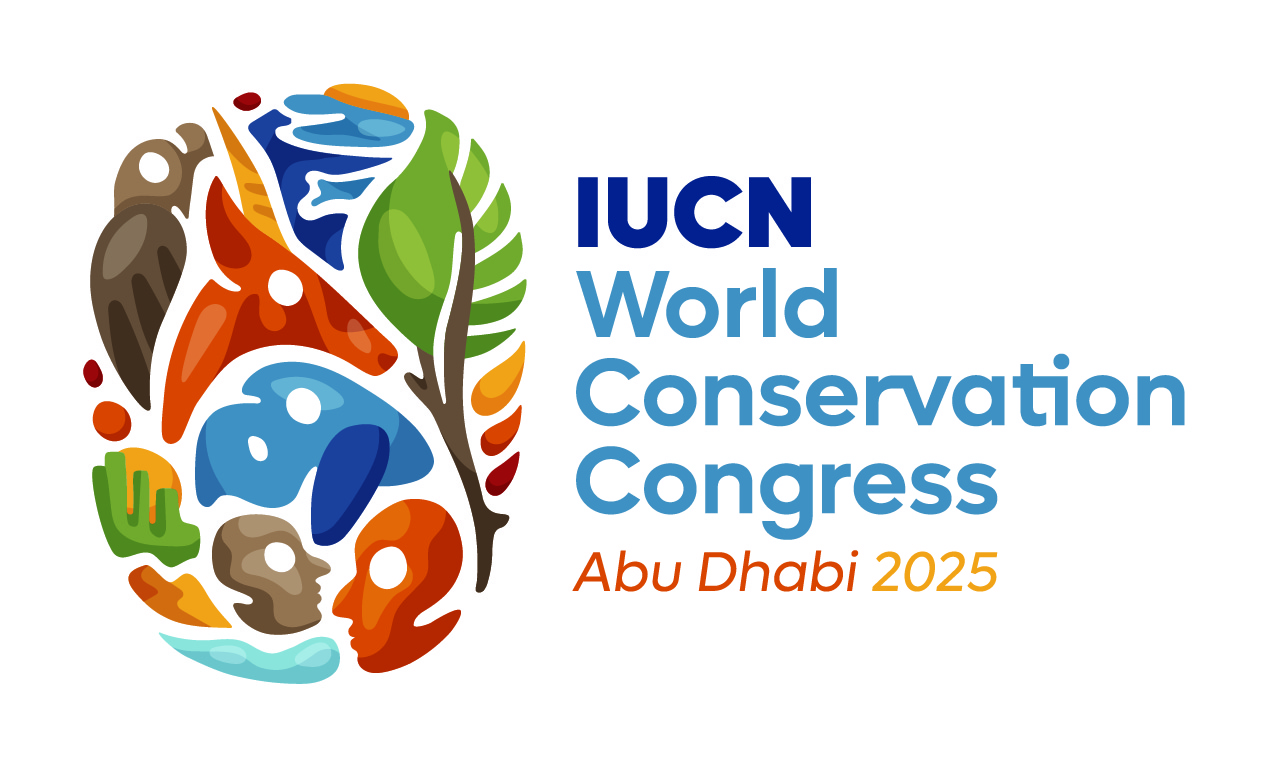
Closure of the PPI OSCAN 3 : four years that have strengthened a new generation of conservation actors in North Africa
The third phase of the PPI OSCAN is coming to an end after four years of intense work that has profoundly transformed the landscape of environmental civil society in North Africa. More than just a grant program, this phase has been a real springboard for the emergence of a community of organizations that are more visible, stronger, and better connected.
Launched in 2021, PPI OSCAN 3 marked a major turning point, supporting 30 organizations in Morocco, Tunisia, Libya, and, for the first time, Egypt.
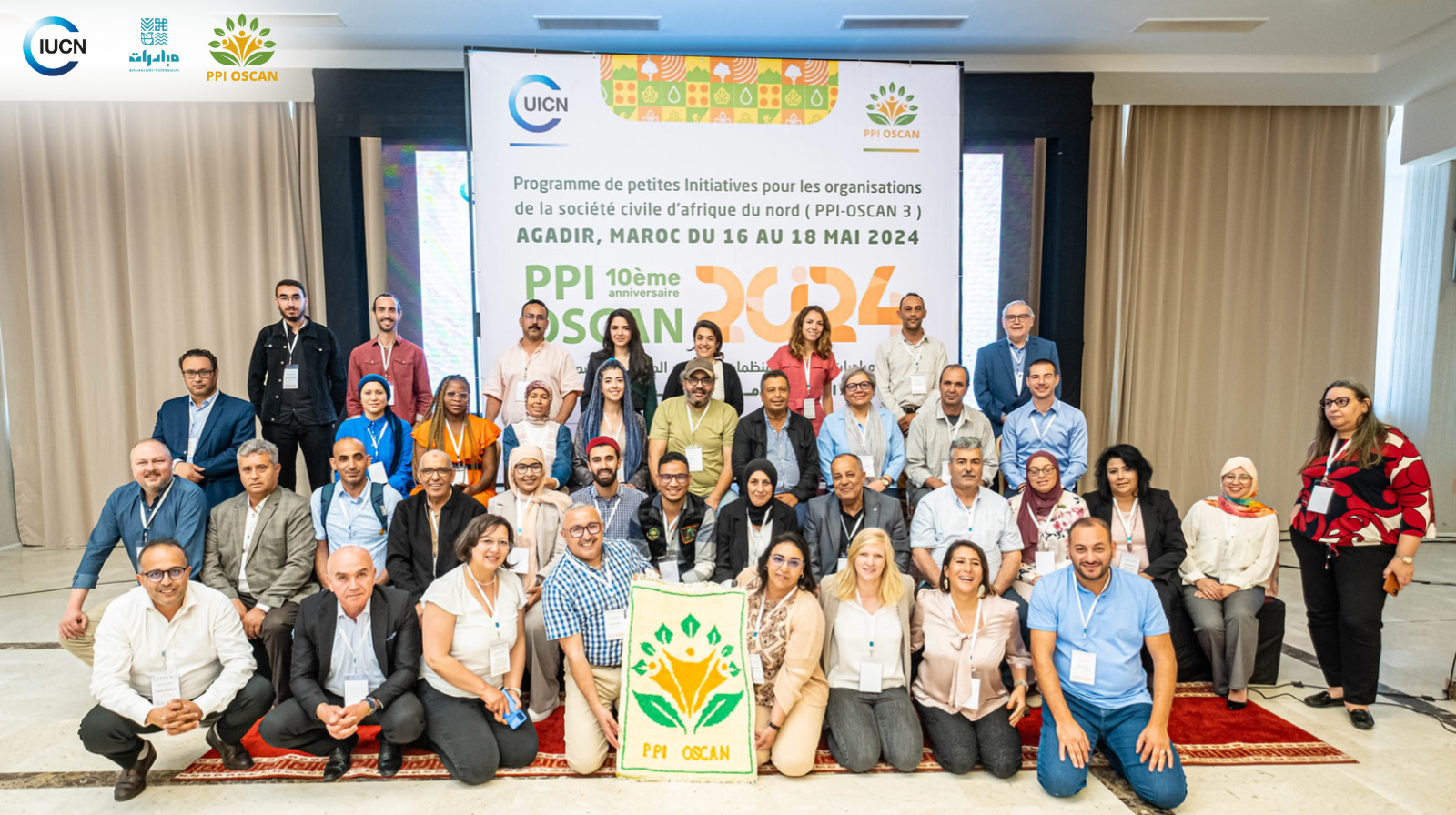
While the 30 funded projects represent the backbone of the programme, its real impact lies in the evolution of the CSOs themselves.
Many strengthened their presence within local communities by working for a second consecutive phase in their areas of intervention.
Others professionalised their internal structures thanks to several months of tailored organisational support.
Some represented their communities for the first time in national and international events, gradually becoming recognised references in their fields.
A pivotal phase, between consolidation and expansion
Phase 3 marked a key milestone in the way IUCN Med provides support to CSOs.
The capacity-building programme was completely redesigned: in addition to regional training sessions for emerging CSOs, ten more established organisations benefited from tailored organisational support.
Spread over several months, this support enabled them to improve their governance, strategic planning and financial sustainability.
A fifth regional training session focused on fundraising was introduced to help CSOs plan beyond the programme and diversify their financial resources.
These enhancements illustrate the programme’s evolution toward a strategic, long-term support model that reinforces the organisational maturity and autonomy of CSOs.
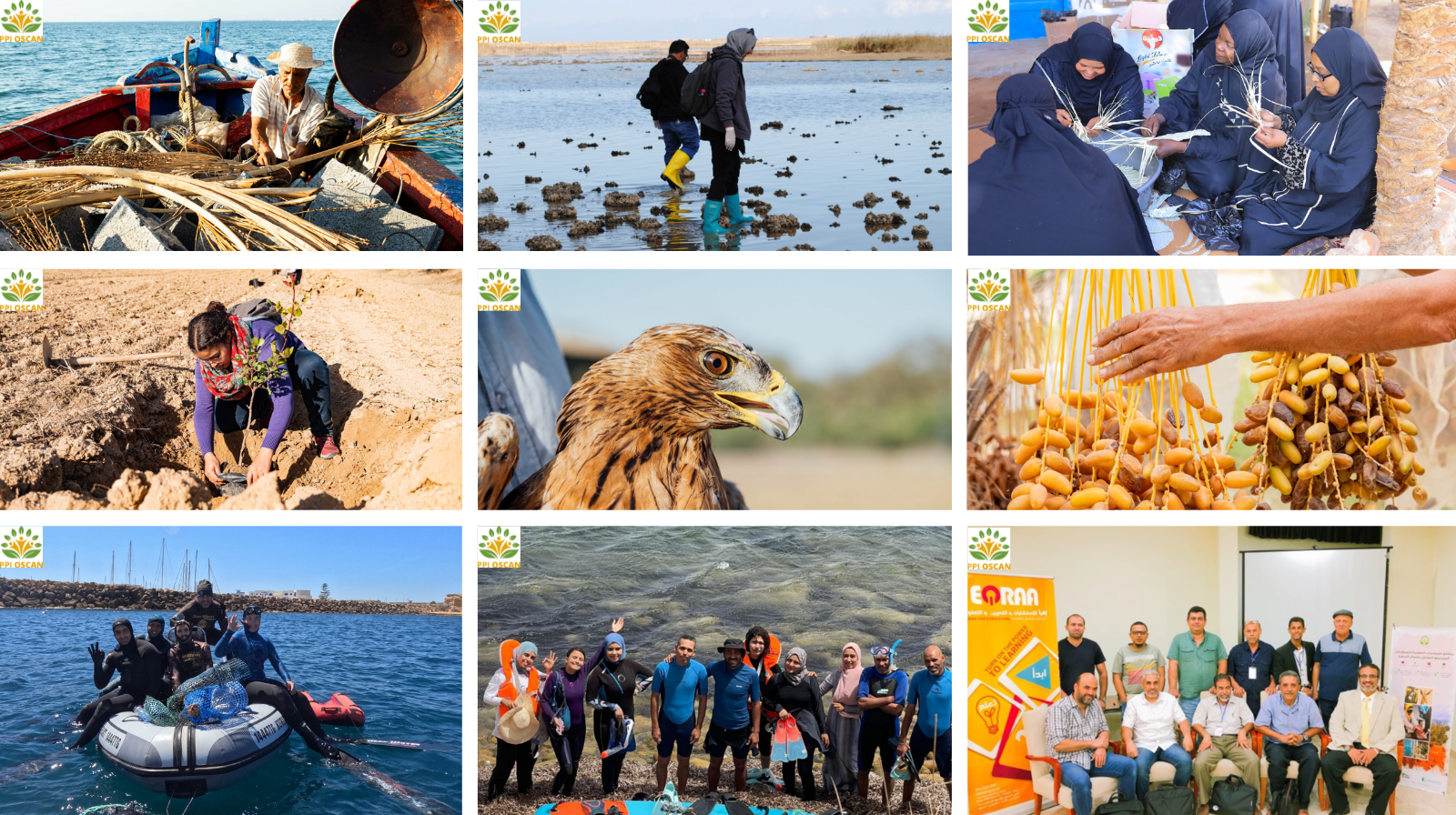
Concrete and lasting results on the ground
The PPI OSCAN projects have covered a wide diversity of ecosystems, forests, wetlands, oases, coastal and marine areas, through ecological restoration, scientific monitoring, awareness-raising, co-management and local economic development.
Collectively, they have achieved:
-
the restoration or improved management of several hundred hectares of fragile ecosystems (forests, oases, wetlands, marine and desert environments), through concrete actions such as reforestation, irrigation systems, restored islets, artificial reefs, sand-control measures, and the rehabilitation of traditional charfia fishing systems;
-
the training and awareness-raising of more than 700 people — farmers, fishers, youth, women and local authorities — who are now adopting more sustainable practices (agroecology, responsible fishing, ecotourism, ecological monitoring);
-
the creation or strengthening of income-generating activities, including ecotourism, beekeeping, natural resource valorisation, crafts, sustainable fisheries and agroforestry, helping to improve local livelihoods;
-
the establishment of new partnerships between civil society organisations, local administrations, universities and economic actors, contributing to more participatory territorial governance;
-
the emergence of a more connected regional community, sharing tools, data and good practices, and developing joint initiatives beyond the initial funding.

Growing networking dynamics
The two regional workshops held during this phase significantly strengthened the PPI OSCAN CSO community.
These gatherings led to new cross-border collaborations, with some associations formalising partnerships to implement joint activities.
Networking was also reinforced through joint training sessions between CSOs and IUCN members, reflecting a growing willingness among organisations to engage beyond project implementation.
This evolution also resulted in several CSOs joining the IUCN global membership network and the creation of the Libyan National Members Committee — a symbolic milestone in structuring the environmental movement in North Africa.
Enhanced communication and visibility
The programme’s communication component was strengthened to support CSOs in showcasing their initiatives.
Numerous reports, articles and visual materials were produced, highlighting the diversity of actions: wetland restoration in Tunisia, marine conservation in Libya, sustainable oasis management in Morocco, and more.
This increased visibility allowed several CSOs to present their work in national and international forums, alongside public and private stakeholders.
A strong foundation for the future
Beyond the results, PPI OSCAN 3 has consolidated a new generation of local organisations now capable of engaging with public authorities, managing complex projects, and contributing actively to national conservation policies.
These achievements will inform the design of the fourth phase of the programme, integrated into the Mubadarat initiative of IUCN Med, which will emphasise peer learning, professionalisation and networking among Mediterranean CSOs.
IUCN Med extends its gratitude to the financial partners: the French Global Environment Facility (FFEM), The MAVA and Sigrid Rausing Trust Foundations, and national institutions in each country: the Egyptian Environmental Affairs Agency, the National Agency for Water and Forests in Morocco, and the Ministries of Environment in Tunisia and Libya.
Their commitment has helped create a favourable environment for local organisations and laid strong foundations for the next phase.
![]()
To learn more:
Follow PPI OSCAN on Facebook: ppioscan on Facebook
Discover Mubadarat by IUCN: Mubadarat on Linktree
![]()


